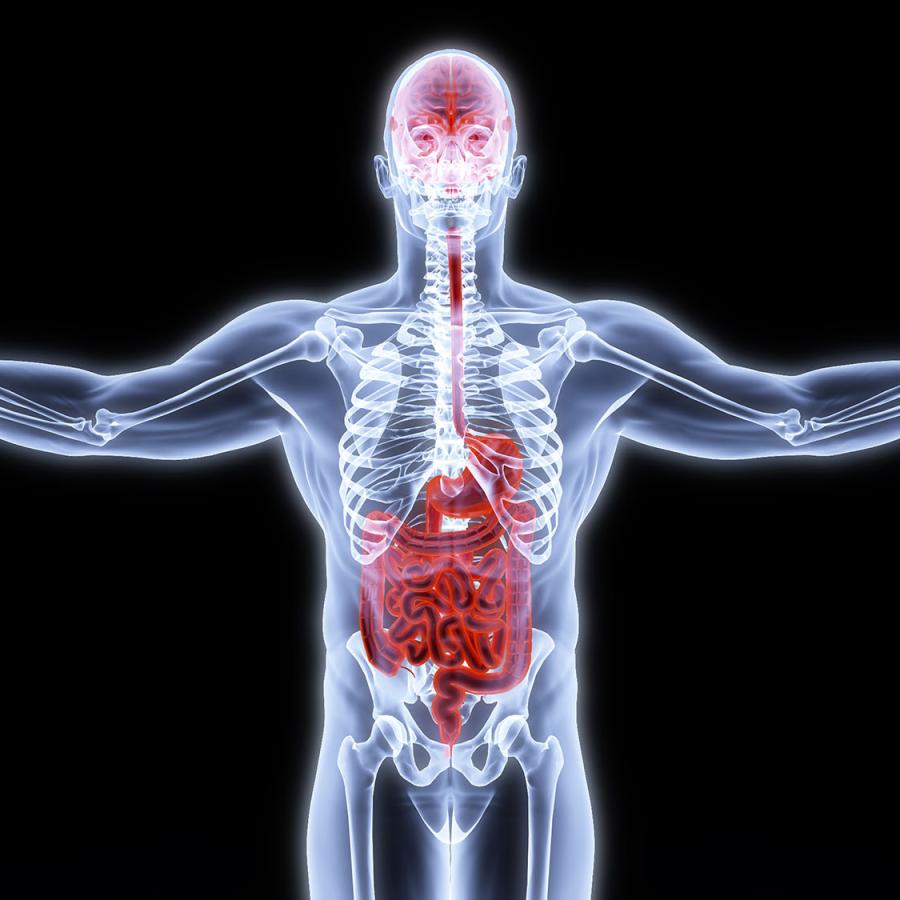
“He was paralyzed by shock.” “She’s sick with worry.” “He died of a broken heart.”We’ve all heard of psychosomatic (“mind-over-body”) conditions. Feelings of surprise, anxiety, and sorrow can be so intense that our bodies respond acutely, translating emotional reactions into physical ones.
Popular wisdom has always known that each one of us is a whole comprised of many connected and interrelated parts. Modern science and medicine, however, lost sight of that connection for a long time, and have only recently begun rediscovering it.
Inflammation in the body plays an important role in mental health. To understand the connection between mental health and inflammation, let’s first explore two important concepts: the connection between the brain and the gut, and how inflammation works in the body.
The Brain-Gut Axis
Medical science now knows that the gut is the seat of the immune system. The brain, or nervous system taken as a whole, interacts with the immune system in a profound way. In fact, the complex system of roughly 100 million nerves lining the gut membrane comprise the enteric nervous system (ENS). Also, our bodies are composed of so many bacteria that they outnumber our own cells. These bacteria are our gut microbiota.
Ever have a “gut feeling” about something? Well, our new scientific understanding of the relationship between the brain and the gut confirms what common sense has always known. Bottom line: mental health affects immunity, and immunity affects mental health – for good or for bad.
Chronic Inflammation
Inflammation has two distinct phases: initiation and resolution. At a molecular level, balance between these two phases is the definition of wellness.
The body reacts to an adverse agent or condition (such as a pathogen or injury) by heating up the affected area. Usually, things get back to normal once the threat has been immobilized and eliminated. Sometimes, though, imbalance between these two states leads to a situation of chronic inflammation. In turn, this results in impaired—or even lost— function. In other words, things just don’t work right.
How Does Chronic Inflammation Affect Mental Health?
Mental health is a function of a rightly aligned brain state: how it interprets life events. Many of these are potential stress factors. Think back to the scenarios we began this blog with: extreme shock, worry, and sadness. A healthy brain knows how to handle these situations or, at least, how to recover from them.
Mental illness, meanwhile, is the result of an adversely altered brain state. Simply put, if a healthy mind sees things as they are and reacts accordingly, an unhealthy one doesn’t “get” reality and over- or under-reacts.
Adversely altered brain states, often the result of pyschological stress, tend to cause chronic inflammation. In turn, this can result in one or more pyschopathological states. These include:
- Depression
- Anxiety
- Fatigue
- Social Withdrawal
In other words, the mind and the body can fall into a sort of vicious cycle of stress. It follows that, when such mental disorders occur, reduction of inflammation just might alleviate these conditions.
Heal Your Gut, Heal Your Mind
The ancients were onto something: “A sound mind in a sound body.” This is above all a statement of balance – of moderation.
So, where does this leave us today? Well, with at least 3 powerful conclusions:
- Chronic inflammation is a common denominator of all psychiatric disturbances.
- Chronic inflammation also is a likely risk factor for developing these disorders.
- Reduced inflammation can reduce the symptoms of mental illness.
Want to know more about the connection between inflammation, chronic pain, and chronic disease, including mental disorders? We’ve answered all these questions and more about mental health and inflammation in our new report, Inflammation: The Source of Chronic Pain. It includes specific information on:
- The role of inflammation in 8 common chronic illnesses
- Mental health and inflammation: how they are connected
- The Seyle Pouch theory of inflammation and its role in chronic disease
- Why stimulating the vagus nerve can flip the switch on pain
Download your copy here for free.





